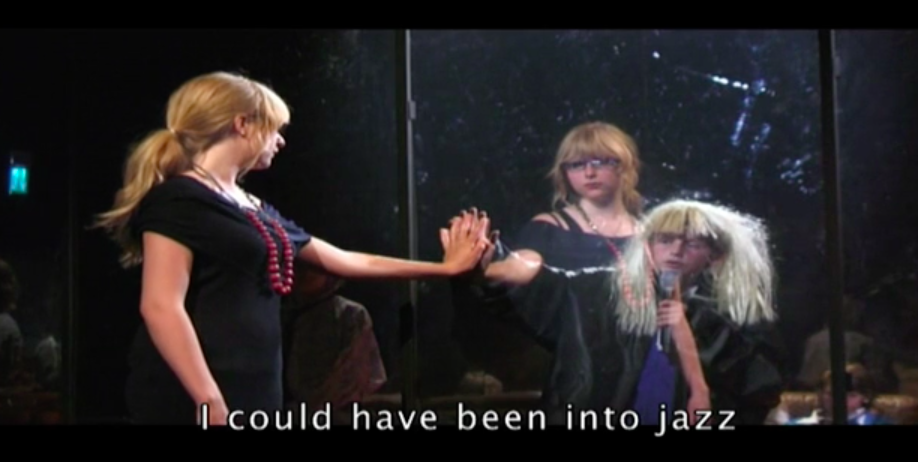Adolescence, mental health, ageing and death. Artists and performers have mined these often complex and upsetting subjects for hundreds of years but has there ever been a collective shot for the jugular quite like Sick!?
This arts festival, taking place in Brighton from February until the end of March, has caught the eye because it treads a more holistic path than the one you and I are more likely to encounter. There's entertainment on offer, of course. But there's oodles of enlightenment too. Sick! hopes to challenge perceptions, prompt reflection and encourage debate by drawing on a powerful alliance of artists, scientists and medical experts. A fusion of the factual and the emotional, if you like.
Clive Parkinson, Director of Arts Health at Manchester Metropolitan University, gives a great example of this in his festival introductory essay, Present Tense: Confronting Mortality. "Whilst the modern version of the Hippocratic Oath urges clinicians to avoid the 'twin traps of over treatment and therapeutic nihilism', it also stresses that 'there is art to medicine as well as science, and that warmth, sympathy and understanding may outweigh the surgeon's knife or the chemist's drug'."
He then goes on ask, "Can artists provide insights into cultural, social and political attitudes towards death and dying?" The example given is a quote from then terminally ill playwright Dennis Potter, a wake up call to live in present and, through the arts, attain some kind of wellbeing. "We're the one animal that knows were going to die, and yet we carry on paying our mortgages, doing our jobs … behaving as though there's eternity in a sense. We tend to forget that life can only be defined in the present tense. You know I can celebrate life. Below my window … the blossom is out in full now. It's a plum tree, it looks like apple blossom, but it's white, and looking at it, instead of saying, 'Oh that's nice blossom,' looking at it through the window when I'm writing. I see it is the whitest, frothiest, blossomest blossom that there ever could be. The fact is that if you see the present tense, boy do you see it! And boy, can you celebrate it!"
There is a temptation to view this festival as an endorsement of arts therapy. Some of you may have seen last year's Souzou exhibition in London, a collection of art made by residents of specialist care institutions in Japan, each diagnosed with a cognitive, behavioural or developmental disorder or mental illness. In Japan this 'Outsider Art' has been closely aligned with public health and social welfare for many years, a means for residents to not only produce work for the sake of creation alone, but also to learn to accept the world and their place in it.
But that's not the main point with Sick! as co-directors Tim Harrison and Helen Medland explained to the Argus: "We don’t claim to be providing a cure. We want to raise awareness of these issues. Perhaps through being really open about it, we can help to reduce the stigma that still exists. Even if we can’t solve a problem, sometimes just acknowledging that the issue exists is an important first step. Maybe some of the works and debates in the programme will give others, the friends and families of people with mental illness, some new understanding of those experiences that the people they know are going through."
The directors hope that those coming to the festival will see something that encourages them to talk more freely about difficult 'life topics' and empathise more deeply with outsiders; the afflicted, the troubled and the lost. To do that they've called on a wonderful mix of characters: the amusingly confessional (Ruby Wax on depression and how we sabotage our own sanity); the balletically poignant (dancer Koen de Preter's performance with a partner 58 years older than him); the deliciously playful (Hart and Darton's cafe-cum-surgery); and the achingly beautiful (Frank Alva Buecheler & Neil Hannon's In May – a series of scored letters from a dying father to his son).
Throw in a handful of debates featuring the contributions of more than 25 experts in their respective fields, and film oddities such as Halley – Sebastian Hoffman's surreal take of one walking dead man's will to live – and you have a platter of challenging, often confrontational work that will have you tingling with life in no time. No wonder Brighton & Hove City Council has cited the festival as part of its public health strategy.
Adolescence has been a topic of particular interest to me. How many of us feel the pressure to act our age, conforming to a certain checklist of life milestones? Things you should be or do by a certain age… As a young boy I always felt in a hurry to grow up. Obsessed with academic achievement and desperate be a success. So I kept my head down and ploughed on through. But at what cost? Last night I went to Gob Squad's Before Your Very Eyes, looking for a few answers. This was the eagerly anticipated last part of the CAMPO trilogy of theatre works with children, made for an adult audience. The first part was Josse De Pauw’s üBUNG, followed by Tim Etchells’ That Night Follows Day.
Gob Squad are a collective of UK and German artists "exploring the point where theatre meets art, media and real life." In this case, society's obsession with youth and ageing. Our viewfinder to this self-conscious world is a Big Brother-like fish tank containing seven kids, able to be seen yet unable to see who's watching them. Protected, yet exposed. This was the first time that Gob Squad have not appeared on stage themselves, instead directing.
The 75-minute performance – their last after three years of touring across the world – mixed on-stage interaction and video footage, not to mention a side-splitting dose of comedy dancing to Queen's Don't Stop Me Now, among other more introspective songs. One minute a child was fantasising about the adult things they would be able to do (smoke, dress up, have sex, sleep when they want), the next they would be confronted by their younger selves and cringing at how stupid or loser-like they used to be. Why is a rubber so important to a child? Then, as their lives hurtled into the future, we were greeted by the 45-year-old versions of these kids – fat, single, socially awkward … or just plain average, prompting the question, "Did things not turn out as you expected?" To which someone would ponder what might have been: "I could have… [insert dream here]."
Life also imitated art. Gob Squad had been working with these kids for about five years and some of the footage we saw from their early days was actually taken from their auditions, for example Ramses' confession about the love letter from his sweetheart. If looks could kill… The structure has remained the same yet the content has evolved as the kids have grown up. Apparently 95% of the show was their improvisation according to performance coach Pascale Petralia. The impressions of adulthood they presented us with are their own – their parents, other adults they interviewed – not those of Gob Squad.
As one lady mentioned in the QnA afterwards, the performance was extraordinary in how it managed to provoke a range of emotions. The joy of being young, reckless and devoid of any responsibility. Years later, this gives way to pangs of disappointment as the promise of youth dissipates and the mind clings to opportunities missed rather than wisdom gained. I sat there towards the end of the performance thinking: "If child me could have a talk with my older self, what would I say?
Professor Jonathan Green, a child and adolescent psychiatrist at the University of Manchester, called the show "a really special, boundary-breaking piece of work". Alluding to the notion of our past being another country, he acknowledged the complexity of childhood experience – that kids are not merely concerned with the trivial stuff we think they obsess about – and suggested that "there is a need to forget and a need to remember". In other words, forgetting is necessary in order for us to grow and move forwards. "If we can live with ourselves in the past, there we're going to be a lot more comfortable with ourselves in the present."
Robert, one of the most charismatic performers, joined us for the QnA, sporting a onesie and a very matter-of-fact manner that belied his baby face. When asked about whether he worries about getting old and dying, he simply replied: " Every life has good and bad things. It's up to us to make the best of it." And then he went back on himself, as if speaking for the rest of us when he closed the night by saying: "If I was reborn, I think I'd have another childhood."
And how did I feel after a profound night of big questions? I opened up my pad and scribbled the following words: "No expectations. No regrets."
Sick! Festival runs until 29 March. visit www.sickfestival.com to see what's on and book your tickets.
PS If you're interested in open discussions about the taboo subject of mental health, then please pick up a copy of Manchester-based mind culture magazine Nous. Non-profit, heartfelt.



